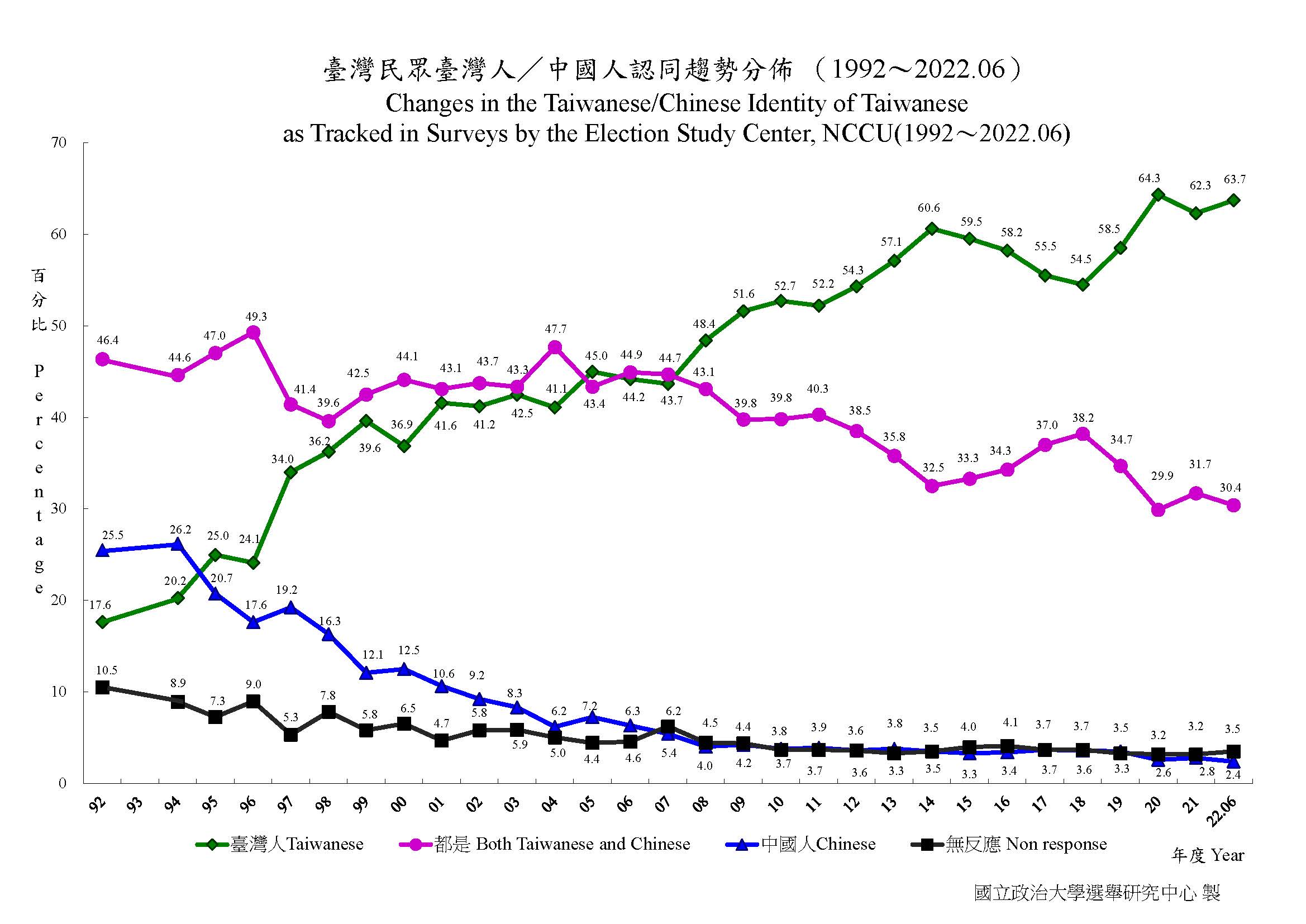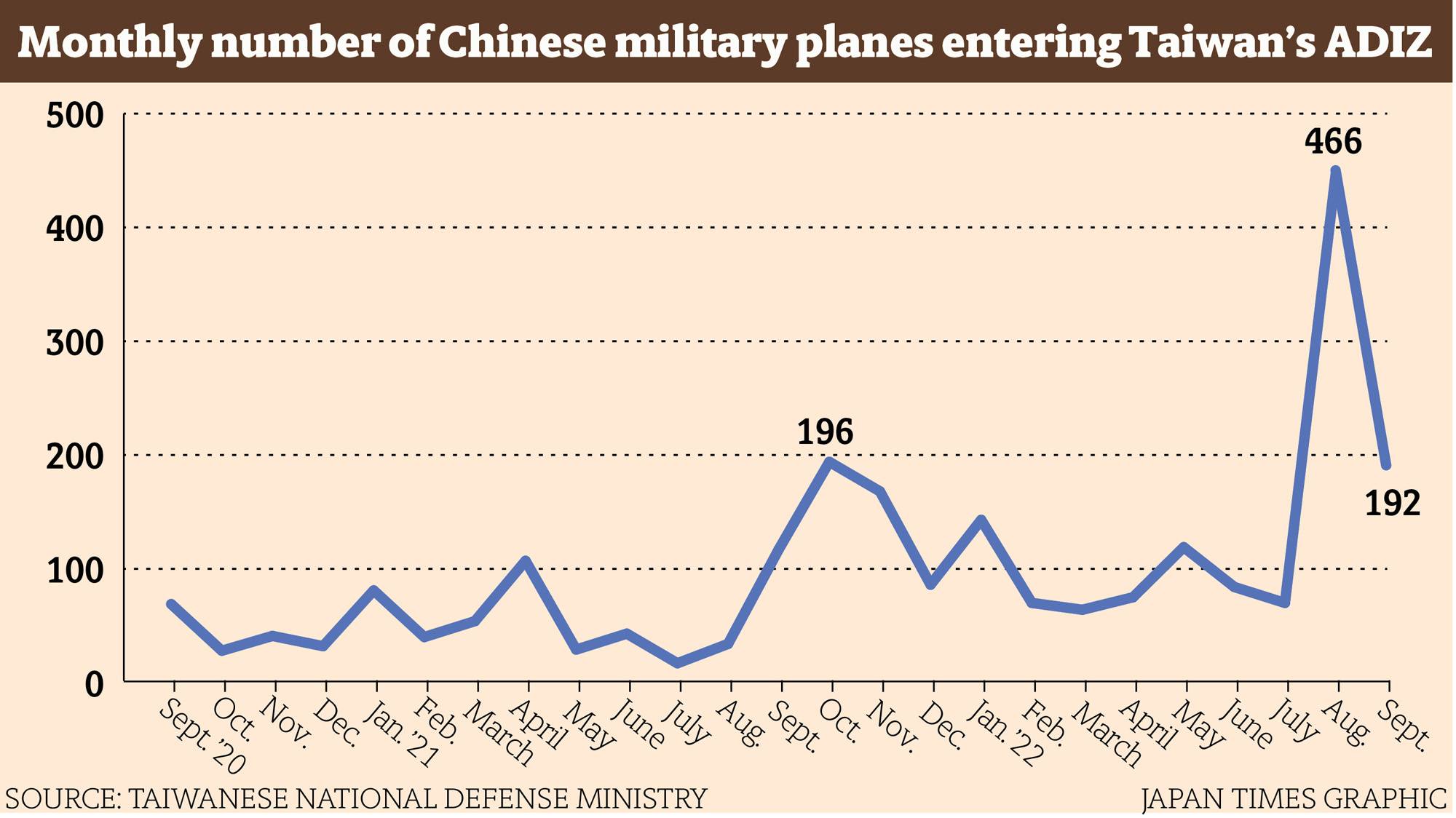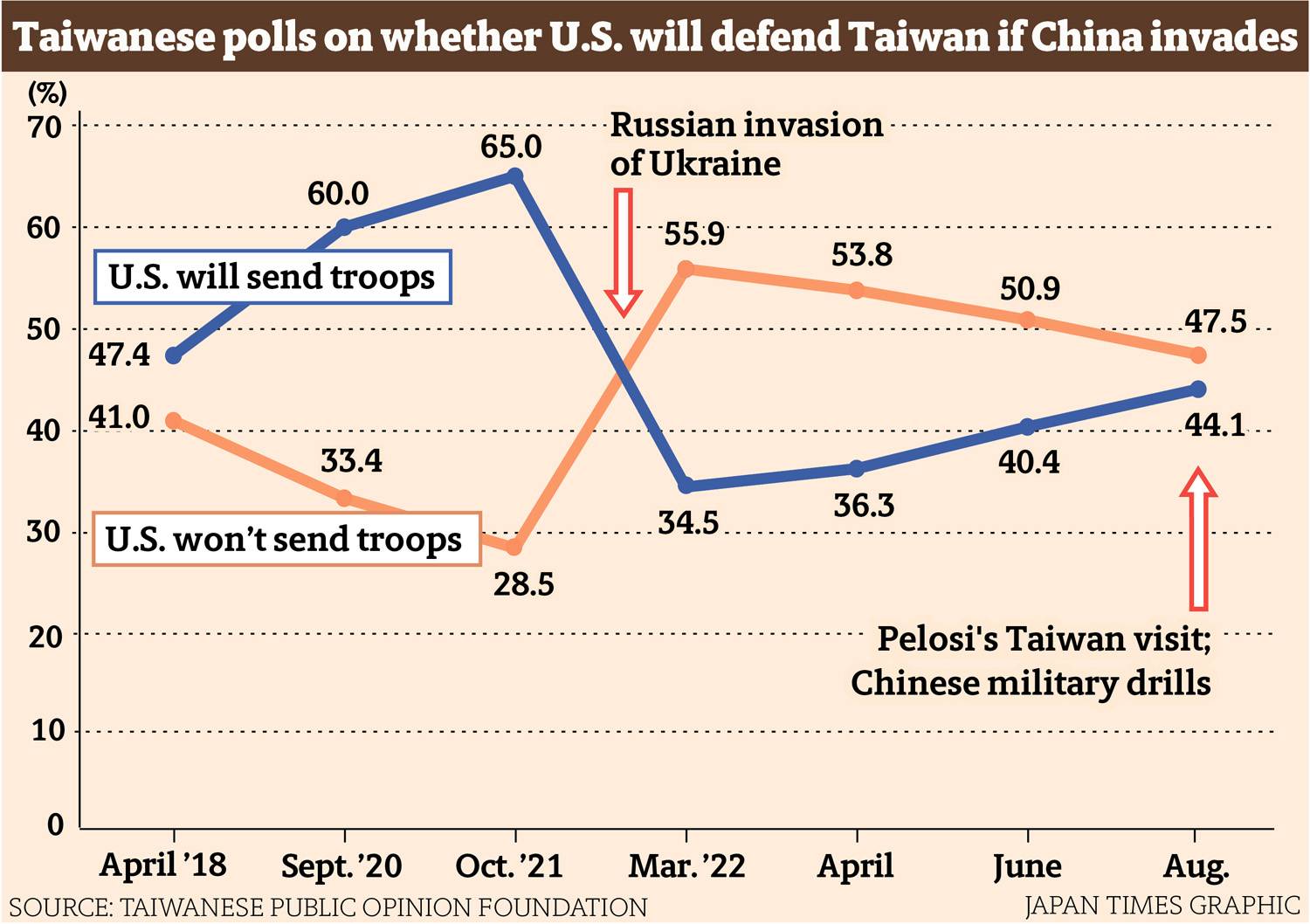Chapter 3 China (Week 3)
3.1 Discussion questions
Do you agree or disagree with the arguments of the assigned readings? Why?
What other areas/regions are particularly important for the US foreign policy? Why?(*)
Biden says US forces would defend Taiwan in event of attack by China
3.2 Taiwan
Survey from NCCU

Survey from TNDM.



US congress: Taiwan Policy Act of 2022
- “Taipei Economic and Cultural Representative Office” to “Taiwan Representative Office”
- Taiwan treated “as a major non-NATO ally”
- Trade and Investment Framework
- military assistance
3.3 Export control
- Dual-use export control
- new BIS regulations
- supercomputers: chips, software, equipment, components
- forbid US firms and citizens from working with Chinese entities
- Strategic ambiguity \(\rightarrow\) strategic clarity
3.4 Additional resources
Here is a list of resources concerning economic decoupling or sanctions:
- Biden Is Now All-In on Taking Out China: The U.S. president has committed to rapid decoupling, whatever the consequences.
- Ryan Hass on US semiconduct export control toward China.
- Washington Raises Stakes in War on Chinese Technology: New U.S. sanctions are in some ways more restrictive than Cold-War era controls.
- New Chip Export Controls and the Sullivan Tech Doctrine with Kevin Wolf: How the US intends to outpace China in force-multiplying technologies.
- China’s chip industry set for deep pain from US export controls: Experts predict ‘tsunami of change’ for semiconductor industry as Washington wields tools tested on Huawei.
- Secretive Chip Startup May Help Huawei Circumvent US Sanctions.
- Running Target: Next-Level US Tech Controls on China
- Choking Off China’s Access to the Future of AI, where Gregory Allen elaborate on the four chokepoints (AI chip designs, electronic design automation software, semiconductor manufacturing equipment, and equipment components).
- U.S. crafting new rules aimed at curbing China’s advanced computing
- U.S. said to plan new limits on china’s A.I. and supercomputing firms
- Apple’s Tech Supply Chain Shows Difficulty of Dumping China
- Preserving the Chokepoints Reducing the Risks of Offshoring Among U.S. Semiconductor Manufacturing Equipment Firms
- Henry Farrell on export control, which talks about how the Trump administration widened and radicalized the “foreign direct product rule”, which the Biden adminstration experimented on Russai and now applied on China.
Here are resources related to Taiwan:
- Chris Murphy on US Taiwan policy
- GETTING THE TAIWAN POLICY ACT RIGHT
- How We Would Know When China Is Preparing to Invade Taiwan.
- U.S. Aims to Turn Taiwan Into Giant Weapons Depot
- A Taiwan perspective on what is at stake after Nancy Pelosi’s visit to Taiwan
Some more resources concerning US China strategy:
- Stronger: Adapting America’s China Strategy in an Age of Competitive Interdependence, with clips comparing the two countries’ military, economy, and international roles.
- DEFEAT CHINA’S NAVY, DEFEAT CHINA’S WAR PLAN
- The Shallow Origins of the Indo-Pacific
- Biden’s promise to defend Taiwan says a lot about America’s view of China
- Is the United States Getting China Policy Dangerously Wrong?
- IDEOLOGY AND AMERICA’S VIEW OF THE WORLD
- Avoiding the China Trap, with Jessica Chen Weiss
- The Weird Threat Inflation of ‘Peak China’ Warnings: What if the original assessment of Chinese ambitions is mistaken and their government isn’t trying to do what the hawks insist that they are?
- Jude Blanchette on the concepts of “strategic ambiguity” and “strategic clarity”
- The Tragedy of Taiwan’s Success The logic and virtue of American “strategic ambiguity” are more important than ever.
Finally, some miscellaneous topics:
- Gaffe or not, Biden’s Taiwan defense remarks stir confusion
- American Universities Continue to Falter in World Rankings as China Rises
- China ‘began stockpiling PPE months before Covid outbreak’ China also started to buy up global PPE stocks in Europe, Australia and the US around the same time, experts say
- China’s global lending by the New York Times
- Implementing Grand Strategy Toward China
Ian Bremmer and Kevin Rudd on Global Geopolitical Risks Ahead of U.S. Midterm Elections, where Rudd explained that the US tried for 6-12 months but failed to convince other allies to come on board concerning tech sanctions on China.